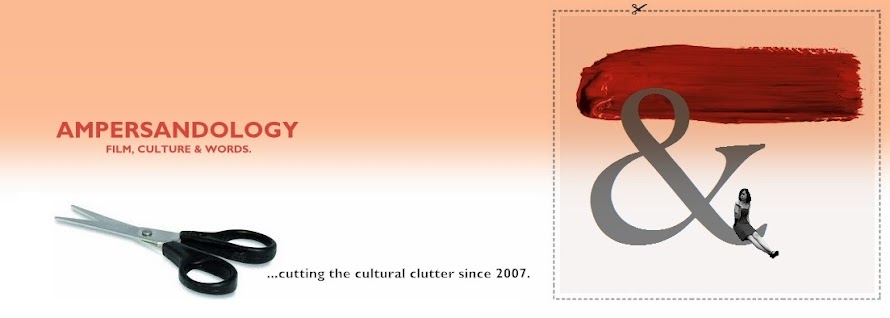
“Society doesn’t need newspapers. What we need is journalism.”- Clay Shirky , professor of New Media at New York University
Something interesting has fallen on my ears of late, and I've hesitated to comment on until I could really wrap my brain around it: is Jon Stewart our modern day Edward R. Murrow?
James Fallows of the Atlantic (along with Eric Alterman of The Nation) sure thinks so. And no doubt, it's certainly a tidy way to package Stewart's role in the pop culture pantheon, with the bonus of reinforcing media's need to loop history into endless repeat. And comparison is not new to The Daily Show under Stewart's run: as he climbed to his current place in the hearts of White People everywhere, he's been likened to a "skinnier Letterman", or a "Jewisher Conan." (I'm as guilty of this as anyone: in my opinion he's the closet thing to an everyman the intelligentsia will ever nab). I guess someone like Stewart, who usually eschews convention by pointing out how he conforms to it before the other guy can, typically needs such helpful contexts.
What really got the Stewart/Murrow ball rolling was the now-infamous Jim Cramer interview from March 12th, compared endlessly to the Murrow/McCarthy showdown of the 1950s. It's risen to near-mythic status, and not only online: a quick YouTube search will reveal all the mentions the interview garnered in the major news networks (including Cramer's --CNBC). The Cramer interview will probably be one of those things pop culture will look back and say marked the beginning of an end for Stewart's dodge of journalistic heft.
Until recently, Stewart had seemed determined to stay safely seated at the kid's table of broadcast journalism. But, as many have noted, Stewart's style is starting to change. During the 2008 election coverage and, more recently, as the knowledge we had about the tangled underbelly of the financial crisis deepened, he slowly peeked out from behind his puppet lead in and lowered his hands from their trademark "I'm just the funny guy!" shrug. He called the media out for their blatant theatrics, their manipulation of facts, and their partisan coverage. Maybe what the Cramer interview marks is the shift of Stewart's mea culpa. He's long held the place of David to the Goliath-reach of the McNews outlets: when the occasional politician, journalist, or news anchor cornered guest on the hot seat would throw back the idea of journalistic responsibility in Stewart's face, his long-suffering defense was that his lead-in was a show about talking puppets.
But what he demanded from these guests was responsibility in the public sphere, whether it be through journalism or even government, a responsibility he himself avoided by the nature of his comedy-based program. But as more and more young people are turning to Stewart et al. for their news coverage (so much so that the University of Indiana recently did a study on the substance behind the Daily Show program), it was becoming irritating (especially for long-time fans) to see Stewart using that humor to merely disarm rather than detonate.
But watch the Cramer interview again. What do we see? A funny guy who's too pissed to crack jokes. The humor here isn't flippant anymore. It's almost morbid. By mid-March, the news had become a daily rotation of headlines that had some kind of surrealist twist to them, something that The Daily Show always thrived under.
And of course, you have a guy who came prepared. Who knows what Cramer thought it was walking into; you can see the uncomfortable ease that he tries (and fails) to pin on the opening strains of the interview. But Stewart guides the interview to the exact pinpoints to deflate everything Cramer and his ilk stand for. The precision with which he conveys how distasteful he finds the financial freewheeling that in large part landed the American economy smack dab in a recession is summed up in two little words: "Roll 212."
The video clips of Cramer from his earlier, pre-CNBC career are particularly damning, acting as a kind of nosy elephant in the conversation. You see Cramer trying to reason with the host, resorting to a flaccid self-deprecation that Stewart shoots down, time after time, with a simple command to his video guy. Their clipped presentation, one after the other, almost without commentary, is damning: Stewart has finally figured out that some news stories don't need a punchline. Emily Nussbaum of NYMag nailed it when she called the "thrilling moral vaudeville" of seeing Stewart so mercilessly exploit his fact-checking.
Much like Murrow, then, Stewart's finally figured out that television's greatest power is its scope: just as Murrow had to learn to marry the medium's pictorial focus with his own preoccupation with ideas, Stewart had to figure out that jokes can be used to point out the absurdities as well as they can soothe their sting.
But maybe the comparison is trite: The Daily Show isn't about to become the next See It Now. Maybe the truth is, our world has evolved past the need for an Edward R. Murrow. Maybe what we really need now is another Jon Stewart.

No comments:
Post a Comment